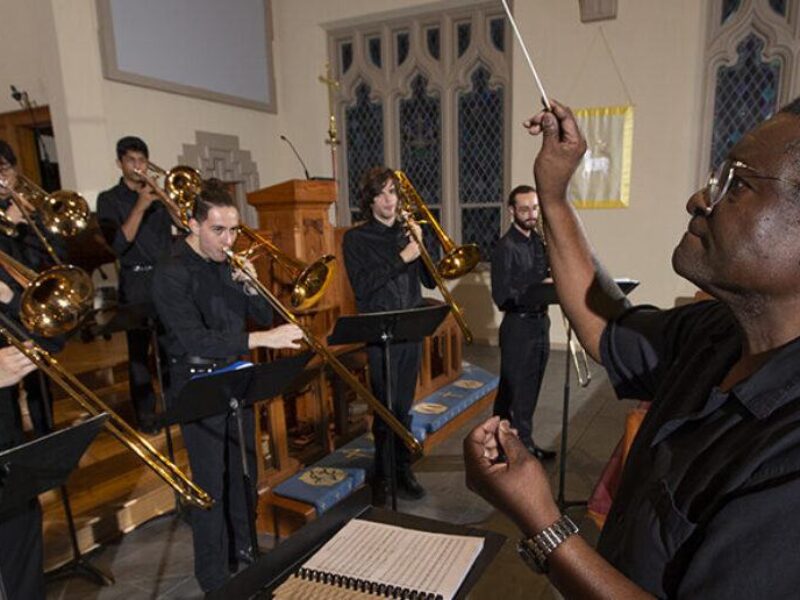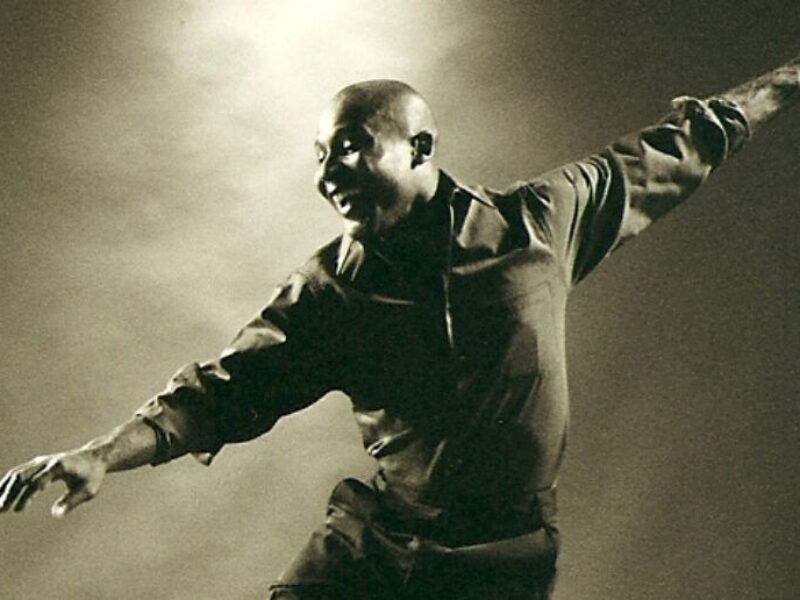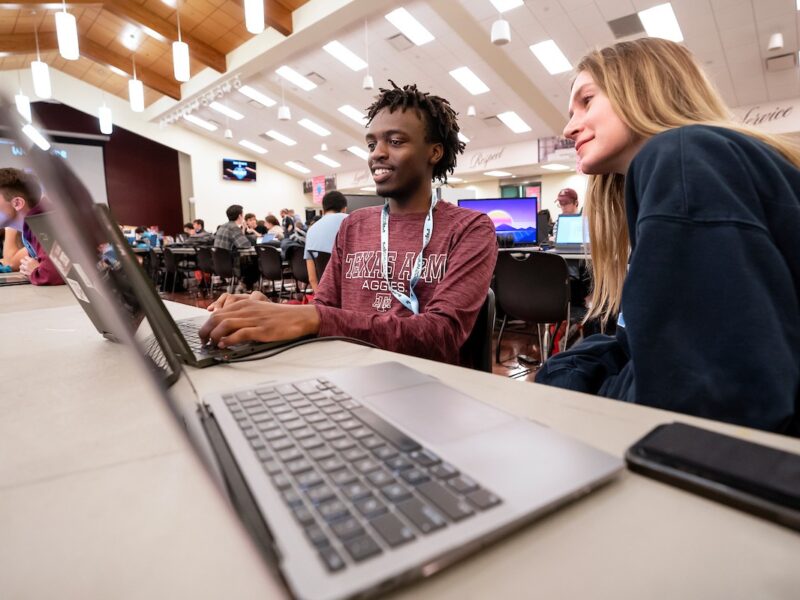Insight And Inspiration: Lyle Lovett Shares Music Experiences With Performance Studies Students During Two-Day Visit
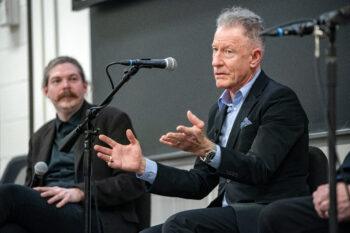
One of Aggieland’s most beloved musicians returned to campus Feb. 12-13 to visit the School of Performance, Visualization and Fine Arts. Lyle Lovett, Texas A&M Class of ’79, explored the school and met with students in two Performance Studies classes.
The four-time Grammy winner and Klein native visited the History of Rock course taught by Dr. Matthew Campbell, and Guitar Heroes, taught by Dr. Cory LaFevers. He was joined by tour manager Jay Wright, who shared insight on touring and the music industry.
Lovett also met with the school leadership and faculty members and toured the school’s facilities, including the recording studio, practice rooms, classrooms and the Black Box Theater. He said he was excited to learn more about the school, pointing out that a dedicated school to the arts didn’t exist in his college days.
“To be able to drop in and hear about a program for performance, it’s really encouraging from my point of view,” he said. “Because it was right here at Texas A&M — and my involvement in the MSC committees, in the Student Programs Office, the Basement Committee — it was right there that I started getting my education in music. So to be able to come back and see the growth, and how the program has been started and progresses — I just find it all very exciting and encouraging.”
Interim Dean Tim McLaughlin said Lovett’s visit was “really important for what we’re trying to build here with the new school.”
“The arts have existed at Texas A&M University as long as the university has existed,” he said. “But the arts have been distributed around campus in different areas. What we’re doing now with the new school is bringing them together. Having Lyle here, talking to students about his experiences as a student, his experience with the arts as a performer while a student on campus, really brings to them the reality that the arts are here.
“When you combine that with the activities and formal arts programming we now have in the School of Performance, Visualization and Fine Arts, it just magnifies the impact of what we’re trying to do. Having his stature here, having his presence, his ability to connect with students — I think was just a wonderful experience for the school, a wonderful experience for the students, and it sounds like he had a great time as well.”
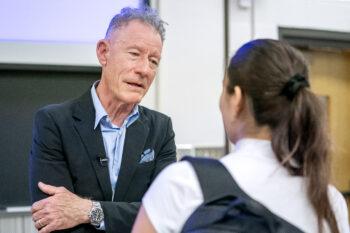
‘A Valuable Part Of My Education’
Music wasn’t hard for Lovett to find on campus, as he explained in Campbell’s History of Rock class. It started right in his dormitory. Students would sit outside their rooms in the evening and play guitar.
“Getting to know people who played guitar, that’s one of the best reasons to play music,” he said. “To associate, to sit and play with somebody who could show you something — it’s a wonderful, social thing to do.”
A key development for Lovett was his introduction to the Basement Coffee House, which primarily booked student performers on Friday and Saturday nights. Lovett started in programming, which meant he called student musicians and asked them to play. Though he called the task daunting, it led to him connecting with and befriending other student musicians. He also booked the occasional regional act, and attended conferences that showcased them. This exposed him to other performers and booking agents, giving him a glimpse at the business side of music, which he called “a valuable part of my education here at Texas A&M.”
When asked about the musical inspiration in his youth, Lovett pointed to singer-songwriters of the early 1970s: James Taylor, Paul Simon, John Denver and Jim Croce. As he moved into college, he gravitated toward such Texas artists as Guy Clark, Townes Van Zandt, Willis Alan Ramsey and Steven Fromholz. He recalled a 1975 concert at G. Rollie White Coliseum by Michael Martin Murphey, who was riding high on his “Wildfire” hit that crossed over to the pop charts.
“This is something I’ll always remember,” he said. “He came out onstage by himself and played the first hour of the show — just him and his guitar, to a basketball arena full of Aggies. To see him hold the attention of those people was so impressive. I thought to myself, ‘Wow. To do that …’ When you go to a great concert like that, it makes you want to go home and play your instrument. Go home and practice. And you imagine what it would be like to stand on that stage.”
(Perhaps the best example of Lovett’s affection for these artists is his 1998 “Step Inside This House” album, on which he covered songs by Texas singer-songwriters including Clark, Van Zandt, Ramsey, Fromholz, Murphey and his classmate and friend Robert Earl Keen.)
When a student asked about the inspiration behind Lovett’s 1987 song “If I Had a Boat,” Lovett traced its origins back to his childhood and his family home in Klein. It began with a pond and a Shetland pony.
“One day, I thought it would be fun to see if I could ride him from one side of the pond to the other,” he said. “We got about halfway, and he had to start swimming. And then I had to start swimming.”
The song’s imaginative story — spun from the idea of a boat carrying Lovett and the pony across the water — started to form at age 20, while he attended A&M. As he was writing the lyrics and working out the tune in his apartment, the starting time for his European History class loomed. Lovett faced a tough decision: Get to class or stay in that moment of creativity to complete the song.
He missed the class. And though it didn’t help his grade, “If I Had a Boat” is one of Lovett’s signature songs and a concert staple.
‘Be Your Authentic Self’
Guitar has been a part of Lovett’s life since he started taking lessons in second grade. But as he told LaFevers’ Guitar Heroes class, he’s not a guitarist. He’s someone who tries to play guitar.
“Playing guitar is an endless pursuit,” he said. “You’ve all heard the cliché: ‘The more you know, the more you realize what you don’t know.’ It’s true. You can always meet someone who can teach you something you don’t know. You can always meet someone who is better than you are. Every day is full of possibility to learn from the people around you.”
Lovett expressed his admiration for guitar makers, saying he loves guitars both as instruments and as works of art, though he joked that his first guitar was “murderous to play.” His parents soon traded that in for a slightly better model, he said, and that guitar still hangs on a wall in his mother’s home.
A major upgrade came as a high school graduation gift: a 1975 Martin D-35. (“I really thought I was something,” he said.) He soon developed a friendship with Austin-based guitar maker Bill Collings, which led to Collings guitars becoming his instrument of choice onstage. Collings, who died in 2017, had a significant influence on a number of well-known artists.
Lovett emphasized the importance of playing with friends, saying he didn’t realize as it was happening just how fortunate he was to have that sort of access in college.
“Just to be able to, on a whim, go to Robert Keen’s house and say, ‘Hey, check out this new song.’ Or for him to call me and say, ‘Hey, I just wrote a song. Will you come listen to it?’ Playing with your buddies now is as valuable experience as working, and you should do as much of that as you can.”
Early gigs for Lovett around Bryan-College Station included Mr. Gatti’s on University Drive, across from campus, and a weekly Sunday night show at Dead Solid Perfect, a hamburger joint on Church Avenue. His payment there: eight hamburgers a gig.
Though it made the class chuckle, Lovett pointed out “how powerful that is.” He could invite people out for lunch or pick up the tab in a group outing.
The love of performing was the important thing, he said, and he took any chance he could get.
“The most important thing you can do is be happy,” he said. “The best way to be happy is to be yourself. Be your authentic self. Find whatever it is in life that allows you to be your authentic self, to pursue things you’re truly interested in and that you truly care about. It’s that caring, it’s that sincerity in whatever it is you do that will rub off on other people, that will inspire people. And all we are meant to do on this Earth, I think, is to help make each other better.”
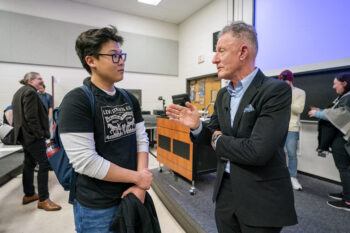
‘Bright Young Minds’
In each of the class appearances, Lovett took questions from students and asked some of his own about their musical interests and ambitions. In his trademark gracious manner, he asked each student their name and where they were from, adding a “Where’d you go to high school?” question if they hailed from areas close to Klein.
The students soaked in Lovett’s anecdotes and insights, getting an inside view of how an artist found his way to a career. Their questions explored everything from the effects of online streaming to his favorite country that he’s visited. To the latter, the author of “That’s Right (You’re Not From Texas)” jokingly replied, “Favorite country? Besides Texas?”
“Lyle was once who we are as students, and now he is this big deal with four Grammys,” said William Downs, a senior Computer Science major and recording engineer and technician for the school, who managed the audio for both class visits. “We are all sitting here listening to him talk and realizing, ‘Oh my gosh, I had this same experience. I went to a concert with MSC Town Hall,’ or ‘I watched someone perform and thought, maybe, one day that will be me.’ Well, Lyle is living proof that you can be an Aggie and you can make it — and that is super cool. He didn’t even major in music, but he had that passion and just kept working toward it, which is inspiring.”
LaFevers said he hoped his students connected with Lovett’s recounting of when he met Collings for the first time. The class recently learned about the importance of luthier Antonio Torres in developing the modern classical guitar in Spain, and C.F. Martin for developing metal-string guitars in the United States.
“To hear Lyle discuss the passion and energy that still drives guitar builders to make beautiful instruments, the way Bill Collings did, connects these historical aspects of the course to the present,” LaFevers said. “And of course, the importance of wood!”
“He’s a gifted storyteller,” Campbell said. “Most of his responses to student questions topped 10 minutes, often weaving through five or six tangential memories or anecdotes, before ending with a pithy aphorism that, though familiar, somehow felt earned and truer by the journey to its telling.”
As he spoke with local media on Feb. 13, Lovett shared his impression of the students, calling them “very thoughtful and very knowledgeable.”
“I learned that there are lots of bright young minds who are already very accomplished and very interested in the subject matter and interested in learning how to do things the right way,” he said. “When you see that among young people, that’s really encouraging.”
The interaction with students was “so much fun to see,” McLaughlin said, noting that Lovett fed off their energy while the students fed off of his stories.
“If anybody knows Lyle as a performer, they know he’s a great storyteller as he performs,” he said. “The same is true in the classroom. He was able to answer questions in a way that went in a really interesting arc around different touch points, so that there is this narrative and context and poetry to the answer. The students found little bits of interest that were funny, little bits of interest that were almost philosophical, and little bits of interest that were truly about what it means to be an Aggie on campus, and having an interest and a passion that moves you though your career as a student into your career and the things you want to do after you graduate.”
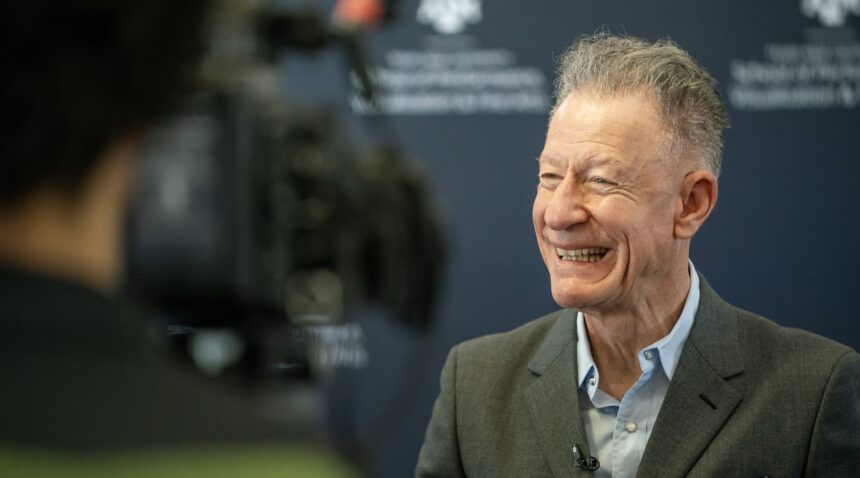
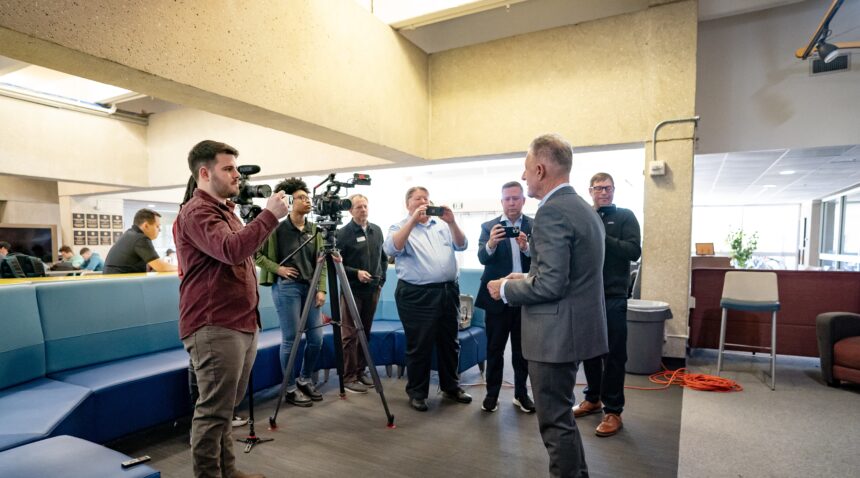
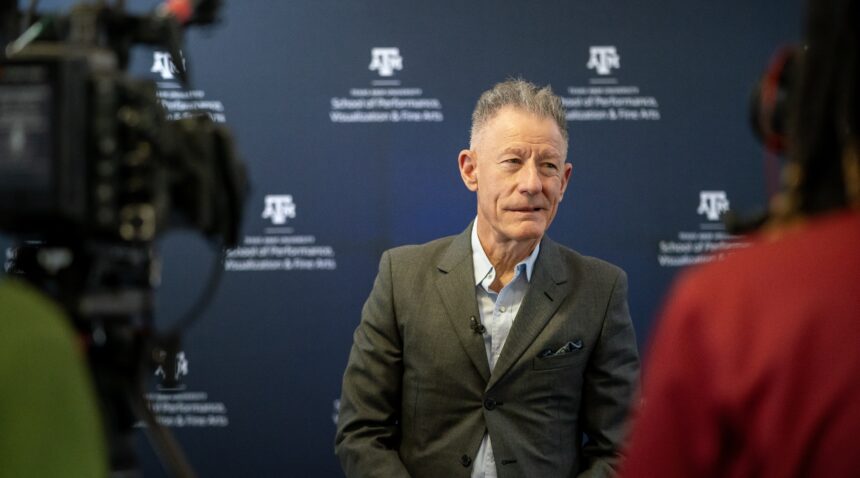
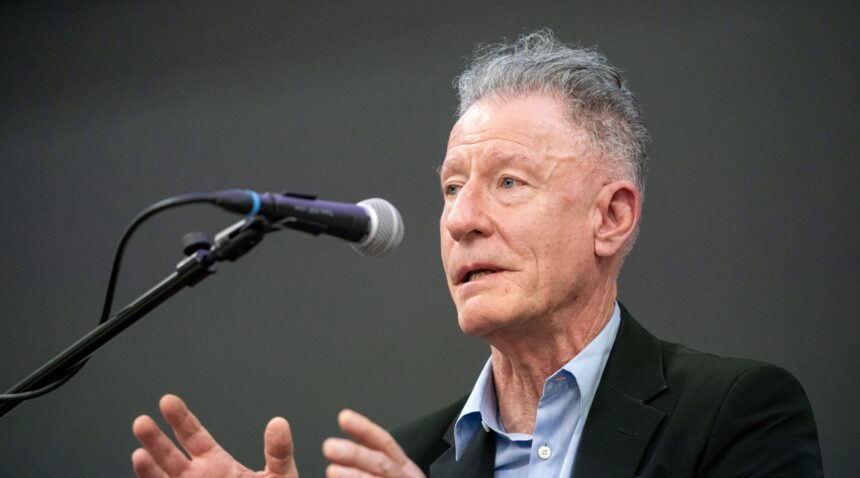
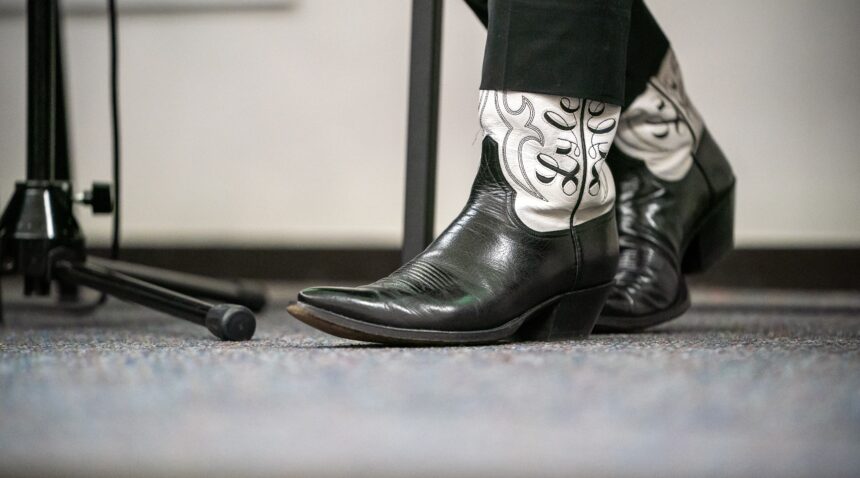
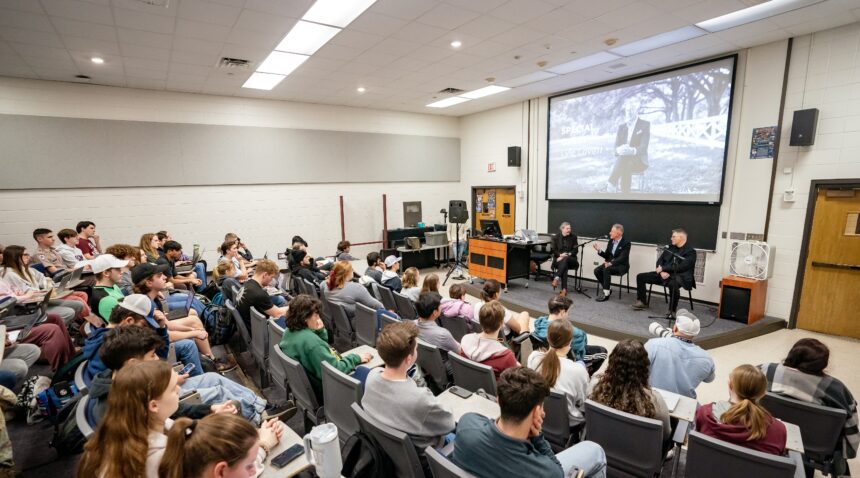
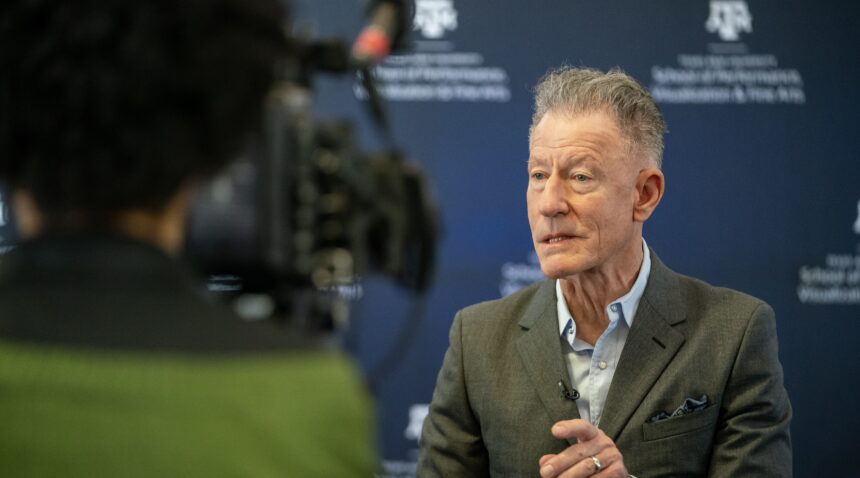
This article by Rob Clark originally appeared on the School of Performance, Visualization and Fine Arts website.
